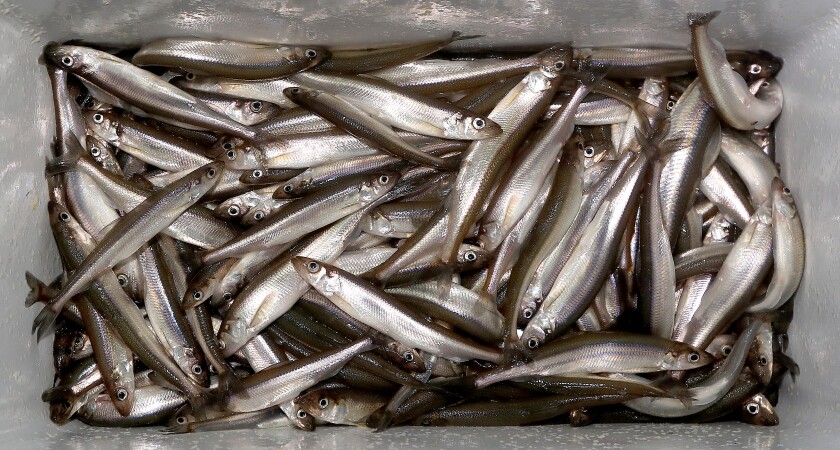ST. PAUL — Minnesota lawmakers piecing together an environment bill have agreed to include a ban on “forever chemicals” in a wide variety of products.
While members of a joint House-Senate committee on Thursday continued work on a final environment and energy budget, earlier this week they announced they’ll include the ban. The bill is likely to pass both chambers of the Legislature and reach the desk of Gov. Tim Walz to be signed into law.
ADVERTISEMENT
PFAS, short for per- and polyfluoroalkyl substances, are found in products ranging from cookware to firefighting foam. Increasing evidence suggests they are linked to cancers and other health conditions, and they are known as forever chemicals because they persist in the environment and accumulate in the tissue of living things.
The ban will be named after Amara Strande, a 20-year-old Minnesota PFAS critic who died last month after a five-year battle with a rare and aggressive cancer. Strande, a graduate of Tartan High �������� in the east metro suburb of Oakdale, grew up in an area heavily contaminated with the chemicals due to dumping by 3M. She became a regular testifier at environment committee hearings at the Legislature, where she urged lawmakers to enact a ban on the chemicals.

“I am proud of the work Amara set in motion,” her younger sister, Nora Strande, said at a news conference Tuesday. “The laws restricting PFAS chemicals are a good foundation, they will allow Minnesota to be proactive against the chemicals here that are harming our environment and the people of Minnesota.”
What will be known as “Amara’s Law” would ban the chemicals from non-essential uses and a long list of consumer products starting in 2025. Manufacturers selling products containing PFAS would be required to report information about products to the state.
Products on the banned uses list include carpets, cleaning products, cookware, cosmetics, dental floss, toys and even ski wax. Firefighting chemicals, such as foams used at airports, will have exemptions. The Minnesota Pollution Control Agency would have a say over the “essential uses” of PFAS.
It’s going to be a problem we are going to be dealing with for a long time. So this is just a beginning, but it is a remarkable beginning.
While it is uncertain Strande’s cancer was directly linked to PFAS, found a cluster of cancer cases among students at Tartan High ��������. The use of PFAS, a group of thousands of chemicals used for their nonstick and water-resistant properties, was pioneered by Minnesota-based 3M, whose corporate campus is in nearby Maplewood.
Over recent decades, peer-reviewed studies have shown that exposure to PFAS could be linked to a heightened risk of certain cancers, decreased fertility, high blood pressure in pregnant women, low birth weights and hormonal interference. Minnesota has already banned the chemicals in food wrappers.
ADVERTISEMENT
PFAS accumulate in the natural environment, and contamination has been found all over Minnesota. The state pollution control agency in 2021 warned that the chemicals had leaked from landfills across the state, creating unsafe levels of drinking water contamination in 41 counties.
Minnesota's pollution control agency says PFAS contamination in fish is “pervasive” across the state. And in 2021, the Wisconsin Department of Natural Resources issued its first-ever PFAS fish consumption advisory for Lake Superior smelt, recommending no more than one meal a month.
Two years ago, 3M agreed to pay the city of Bemidji $12.5 million to build and support a new water treatment facility after the city found PFAS in its water supply. The contamination was linked to fire extinguishing foam used by local fire departments training at the regional airport.

Contamination can be found across the state, but at center stage is extensive groundwater contamination in the eastern Twin Cities metro, an area where 3M has manufactured the chemicals for decades. The company settled a lawsuit over the contamination with the state of Minnesota in 2018 for $850 million and has pledged to stop manufacturing the chemicals by the end of 2025.
Lawmakers say they’ll next have to figure out how Minnesota can get PFAS out of the environment.
“It’s going to be a problem we are going to be dealing with for a long time,” said Sen. Jen McEwen, DFL-Duluth. “So this is just a beginning, but it is a remarkable beginning.”
Minnesota lawmakers have considered expansions of the PFAS ban in the past. In 2022, bills that would have banned the chemicals from cosmetics, cookware and ski wax got a hearing in the DFL-controlled House but did not advance in the Senate, which was then under Republican control.
ADVERTISEMENT
A broad coalition of businesses and industry groups oppose restrictions. In a letter submitted to lawmakers earlier this year, they called proposed bans “overly broad” and lacking “scientific basis,” and expressed concerns about thousands of products suddenly being banned from sale and transport into Minnesota.
“This legislation would have a significant impact on Minnesota in terms of the availability of critical products that are approved and used elsewhere,” they said. “It would also foster an unworkable patchwork of state regulation with significant implications for Minnesota citizens, businesses and public entities, effectively isolating Minnesota from the rest of the country.”
The letter came from more than 60 groups including the American Chemistry Council, and a broad range of interests ranging from the Household Consumer Products Association to the automotive industry and toy makers.
Follow Alex Derosier on Twitter or email aderosier@forumcomm.com .


























